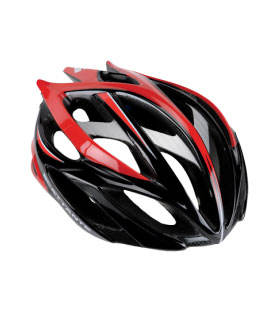
- Afrikaans
- Albanian
- Amharic
- Arabic
- Armenian
- Azerbaijani
- Basque
- Belarusian
- Bengali
- Bosnian
- Bulgarian
- Catalan
- Cebuano
- Corsican
- Croatian
- Czech
- Danish
- Dutch
- English
- Esperanto
- Estonian
- Finnish
- French
- Frisian
- Galician
- Georgian
- German
- Greek
- Gujarati
- Haitian Creole
- hausa
- hawaiian
- Hebrew
- Hindi
- Miao
- Hungarian
- Icelandic
- igbo
- Indonesian
- irish
- Italian
- Japanese
- Javanese
- Kannada
- kazakh
- Khmer
- Rwandese
- Korean
- Kurdish
- Kyrgyz
- Lao
- Latin
- Latvian
- Lithuanian
- Luxembourgish
- Macedonian
- Malgashi
- Malay
- Malayalam
- Maltese
- Maori
- Marathi
- Mongolian
- Myanmar
- Nepali
- Norwegian
- Norwegian
- Occitan
- Pashto
- Persian
- Polish
- Portuguese
- Punjabi
- Romanian
- Russian
- Samoan
- Scottish Gaelic
- Serbian
- Sesotho
- Shona
- Sindhi
- Sinhala
- Slovak
- Slovenian
- Somali
- Spanish
- Sundanese
- Swahili
- Swedish
- Tagalog
- Tajik
- Tamil
- Tatar
- Telugu
- Thai
- Turkish
- Turkmen
- Ukrainian
- Urdu
- Uighur
- Uzbek
- Vietnamese
- Welsh
- Bantu
- Yiddish
- Yoruba
- Zulu
Dec . 03, 2024 17:44 Back to list
Choosing the Right Gear Shifter for Your Mountain Bike Experience
Understanding Mountain Bike Gear Shifters
When it comes to mountain biking, gear shifters play a critical role in ensuring riders can navigate varied terrain effectively. The gear shifter is an integral component of the bike's drivetrain system, allowing the rider to change gears smoothly and, consequently, adapt their pedaling effort to the demands of the trail. In this article, we will explore the different types of mountain bike gear shifters, how they work, and their importance in enhancing the riding experience.
Types of Gear Shifters
Mountain bike gear shifters generally fall into two categories mechanical shifters and electronic shifters
.1. Mechanical Shifters These are the traditional type of shifters and are widely used due to their simplicity and reliability. Mechanical shifters operate through a cable that connects the shifter to the derailleur. When a rider shifts gears, they pull or push the shifter, which in turn moves the cable to adjust the derailleur's position. Mechanical shifters can be categorized further into two types trigger shifters and twist shifters. Trigger shifters are more common in mountain biking, as they allow for precise gear changes with minimal hand movement, ideal for technical riding conditions.
2. Electronic Shifters These shifters use battery-powered systems to change gears. The most notable feature of electronic shifters is their ability to deliver precise and rapid shifts without the need for cables. The gear changes are executed with the push of a button, which is particularly advantageous during aggressive riding or when navigating difficult trails. Although they tend to be more expensive than mechanical options, many riders appreciate their performance, especially in competitive scenarios.
How Gear Shifters Work
mountain bike gear shifter

Regardless of type, the fundamental purpose of a gear shifter is to adjust the bike’s gear ratio by moving the chain between different-sized chainrings or cogs. The gear ratio determines how easy or hard it is to pedal, allowing riders to optimize their effort based on the terrain. When climbing steep inclines, for instance, shifting to a lower gear makes pedaling easier, while higher gears are beneficial for descending or flat sections, allowing for greater speed.
The effectiveness of gear shifting also involves the derailleur, an intricate component that guides the chain across sprockets and maintains tension in the system. A well-tuned derailleur ensures smooth transitions between gears, minimizing noise and reducing wear on the components. Regular maintenance, including cable adjustments and lubrication, can greatly enhance your shifting experience.
The Importance of Gear Shifters
An efficient gear shifter improves a mountain bikers' overall performance. It allows riders to maintain a consistent cadence, conserving energy during long rides and steep climbs. Additionally, the ability to shift gears seamlessly can boost confidence, encouraging riders to tackle more challenging trails.
In competitive cycling, the gear shifter's performance can mean the difference between winning and losing. Many racers invest in high-quality gear shifters to gain a competitive edge, emphasizing the importance of reliable shifting under pressure.
Conclusion
Mountain bike gear shifters are a vital component of any bike, significantly impacting the rider's experience on the trail. Whether opting for mechanical or electronic systems, understanding how these components work and ensuring proper maintenance can enhance performance and make each ride more enjoyable. As technology progresses, so do the advancements in gear shifter design, continually offering mountain bikers new tools to elevate their riding adventures.
-
The Ultimate Kids' Four-Wheeler Experience
NewsJul.09,2025
-
The Ultimate Guide to Mountain Bikes: Gear Up for Your Ride
NewsJul.09,2025
-
The New Age of Cycling: Electric Bikes for Every Rider
NewsJul.09,2025
-
The Best Kids Bicycles: Ride in Style and Safety
NewsJul.09,2025
-
The Best 3-Wheel Scooters for Kids: Fun, Safety, and Adventure
NewsJul.09,2025
-
Revolutionize Your Ride: Affordable Electric Bikes
NewsJul.09,2025
-
Finding the Perfect Mountain Bike for Every Rider
NewsJul.09,2025



